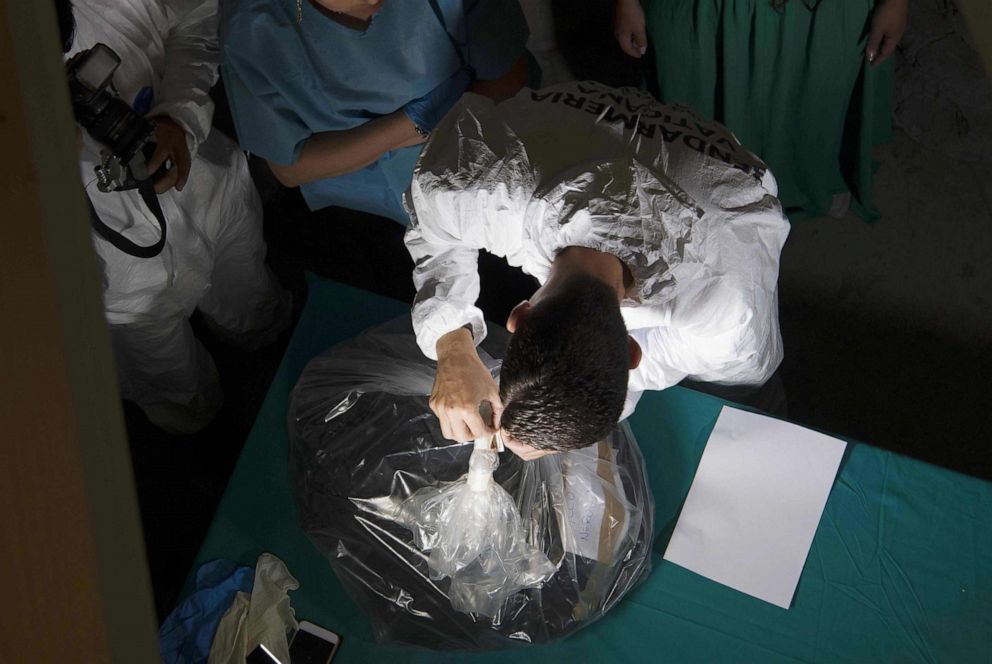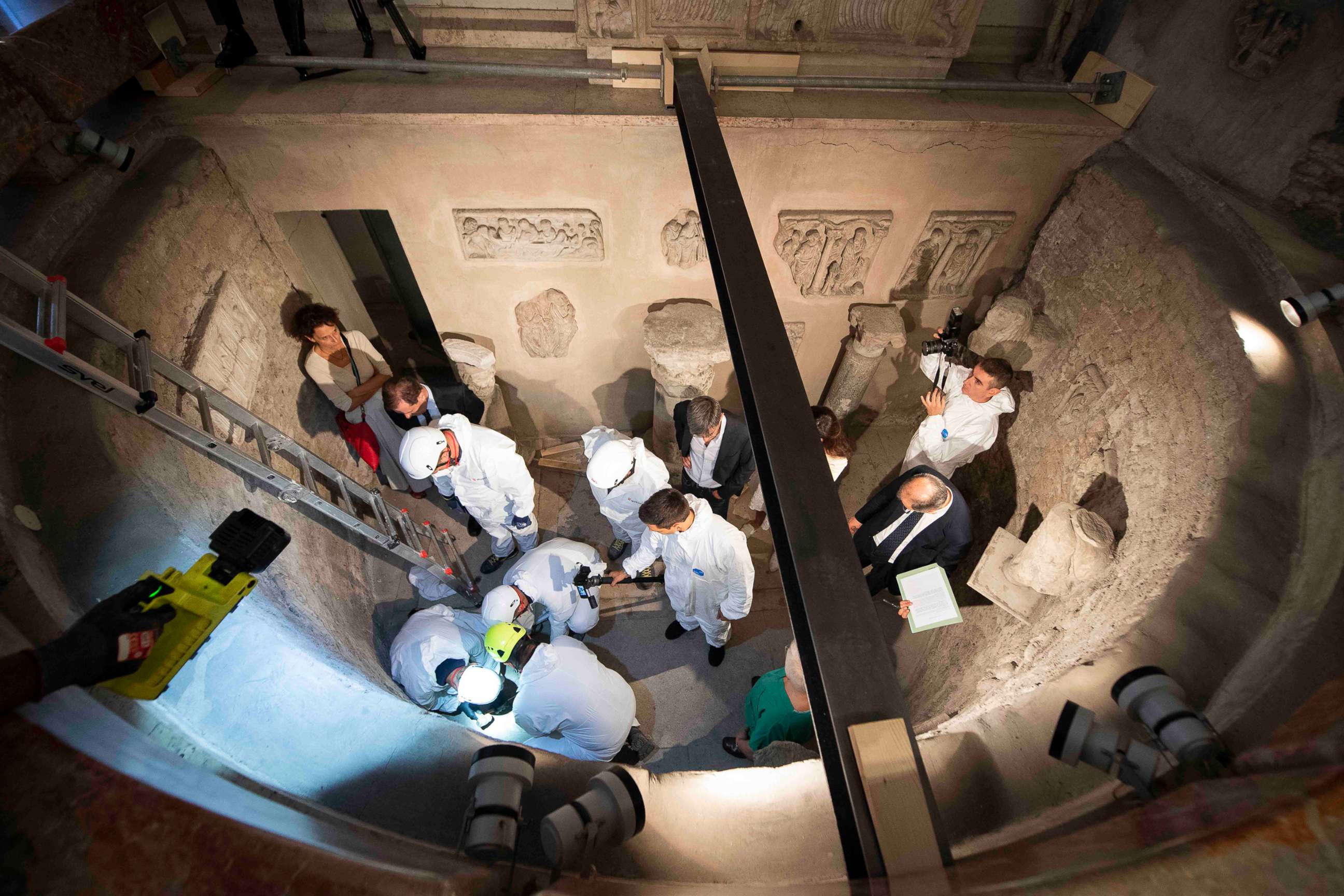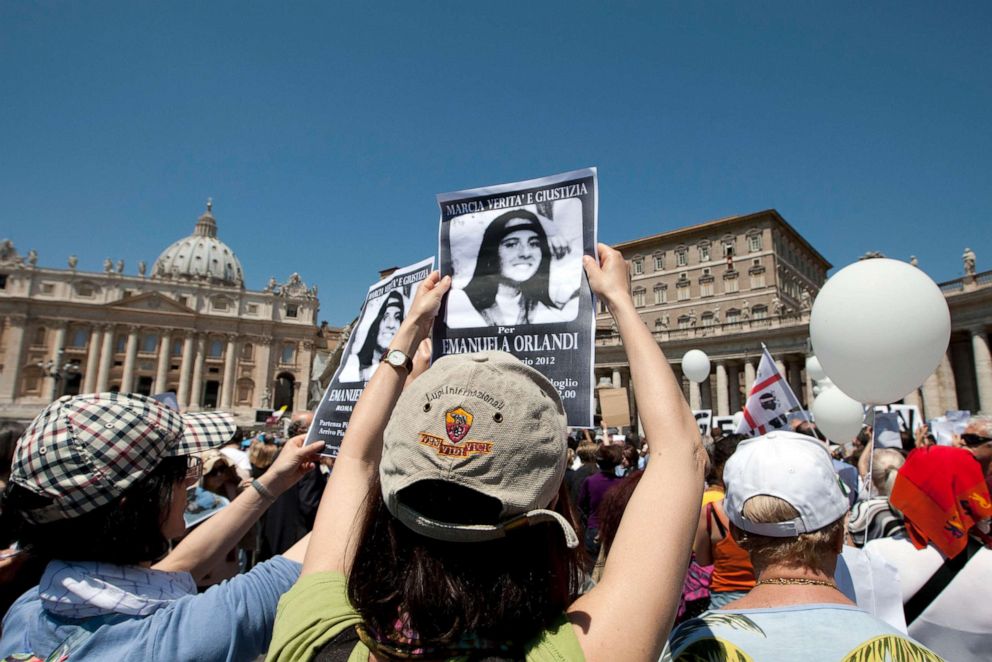Disappearance of Italian girl Emanuela Orlandi remains unsolved after bones exhumed from Vatican cemetery yields no clues
Emanuela Orlandi was 15 years old when she vanished while in Rome in 1983.
A scientific analysis of 24 bags of bones exhumed from an ancient Vatican cemetery determined they are too old to be an Italian high school girl who vanished from a street in Rome 36 years ago, according to officials at the Holy See.
Acting on a bizarre anonymous tip to search for the remains of Emanuela Orlandi under the statue of an angel pointing to a grave in the tiny Teutonic College cemetery inside the Vatican walls, authorities pried open the tombs of two 19th German princesses on July 11 only to deepen the mystery of the girl's disappearance and unearth a new conundrum: the tombs were both empty.
But the search of the graveyard led forensic experts to the discovery of a hidden ossuary, or a container of bones under a stone slab beneath the college, which was opened on July 20.

A team led by renowned forensic anthropologist Giovanni Arcudi examined the several hundred partially intact bone structures and thousands of bone fragments, but the results of the "in-depth morphological analysis" showed the remains date back to the 1800s and, therefore, could not be those belonging to Emanuela, according to a statement released by the Vatican.
Emanuela, a resident of Vatican City and the daughter of a Vatican employee, vanished from a street in Rome on June 22, 1983.
"This refutes any connection with the painful disappearance of Emanuela Orlandi," the statement from the Vatican reads.
Emanuela's family had been hopeful that the search of the cemetery would yield the closure they've long sought. Orlandi's sister, Federica, represented her family along with their lawyer when the bones were exhumed. A forensic expert hired by the family observed the examination of the bones by Arcudi and his team, Vatican officials said.

Emanuela's brother, Pietro Orlandi, and his family's lawyer, Laura Sgro, declined to comment on the findings, citing the ongoing "preliminary investigation," according to the Agenzia Nazionale Stampa Associata [ANSA], Italy's leading news wire service.
"The Vatican has imposed silence during the preliminary investigations into the work carried out at the Teutonic cemetery,’’ Pietro Orlandi told ANSA.
Arcudi and his team rejected a request from the Orlandi family for more laboratory testing on about 70 bones unearthed from the cemetery because the remains also have "very ancient dating characteristics," according to the Vatican.
The Vatican said the examination of the remains "confirms its willingness to seek the truth about the disappearance of Emanuela Orlandi."
"The search for truth is in the interest of the Holy See and the Orlandi family," the Vatican statement reads.
Theories, anonymous tips and false leads have circulated for decades in Italy about Emanuela’s disappearance, but no concrete evidence has been discovered to establish what happened to her. Conspiracy theories have linked her case to a plot to kill St. John Paul II, Vatican bank scandals and organized crime in Rome.
The Vatican has always denied that it has information on Emanuela’s disappearance and has said it has given support to the family over the more than three decades since she went missing.

In its statement Sunday, the Vatican said it "categorically denies that this attitude of full cooperation and transparency can in any way mean, as some say, an implicit admission of responsibility."
While the search of the cemetery turned up no sign of Emanuela, researchers are still hoping that the remains of the 19th German princesses, Princess Sophie von Hohenlohe and Duchess Charlotte Frederica of Mecklenburg-Schwerin, are among the bones recovered from the hidden crypt.
Vatican officials said that after finding the princesses' tombs empty, further research determined structural work had been carried out on the cemetery and the adjacent college in the 1960s and 1970s and likely resulted in the princesses' bones being moved.




